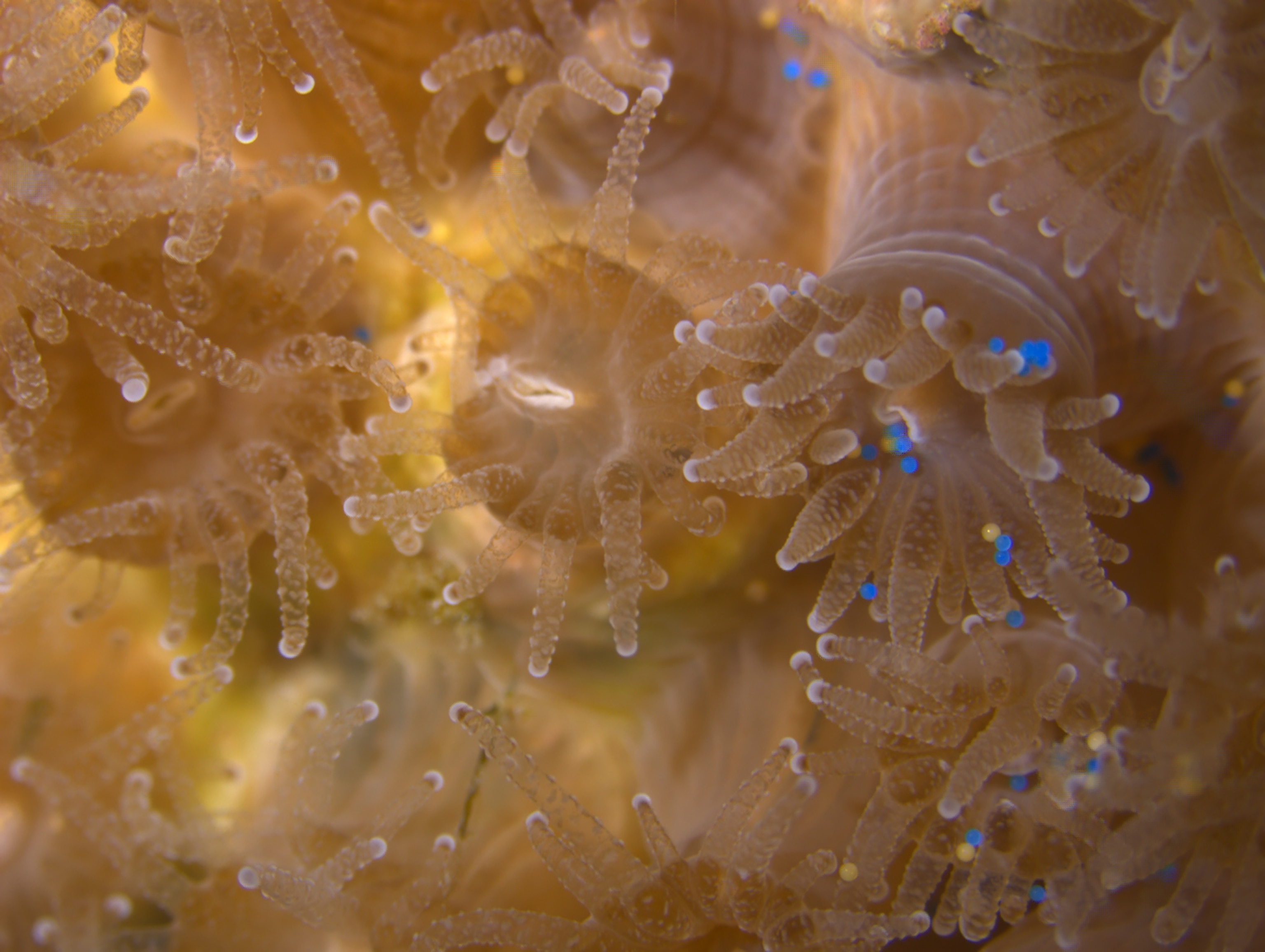
These corals choose to eat plastic over food
Tiny plastic particles may also be a vehicle for microbes that sicken or even kill corals, a new study finds.
Scientists have for the first time shown that some wild corals are feeding on tiny shreds of plastic trash. Worse, the animals seem to prefer those ‘microplastics’ over their natural food—even when the plastic is carrying bacteria that can kill them.
The new study, published in Proceedings of the Royal Society B: Biological Sciences, focused on a temperate species of coral collected off Rhode Island, one that builds small clusters no larger than a human fist. But researchers say the findings suggest that more familiar tropical, reef-building corals may also be consuming—and being harmed by—microplastics, which are defined as bits of plastic waste smaller than a fifth of an inch across.
The new results add to the growing sense that microplastics are ubiquitous in the environment, from tall mountain peaks to the deepest ocean trenches. Many organisms, from fish to birds, have been found to eat small bits of plastic. So do humans, through tainted water and food sources.
When Boston University coral biologist Randi Rotjan, who led the new study, first started working in marine ecosystems, she didn’t expect to be focusing on plastics. She was excited about studying corals and, as she puts it, having a conversation with nature.
“Plastics keep interrupting the conversation, and it’s hard to ignore,” Rotjan said. “You pick your ecosystem, you pick your organism, and you are most likely going to find microplastics.”
Worse than junk food
Rotjan and her colleagues collected four colonies of wild Astrangia poculata, a small coral that lives off the U.S. Atlantic coast from Massachusetts to the Gulf of Mexico. They chose their study site, off the coast of Rhode Island, because it was close to an urban environment—Providence is 24 miles away—that could be expected to pollute the water with plastic.
Back in the laboratory, the researchers cut open the individual coral polyps and counted the number of microplastics. They found more than 100 small fibers in every polyp. Although this was the first record of microplastics in wild corals, earlier research had already shown that this same coral species consumed plastic in a laboratory setting.
The team also performed lab experiments. They presented lab-raised coral polyps with fluorescent blue microbeads—bits of plastic that until recently were used in soaps, cosmetics, and medications—at the same time as a natural food, brine shrimp eggs, which are also about the size of a pinhead.
Every single polyp that was given the choice ate almost twice as many microbeads as brine shrimp eggs. After those polyps had filled their stomachs with microbeads, which have no nutritive value, they stopped eating the shrimp eggs altogether.
“I was totally shocked by the results,” said co-author Jessica Carilli, a scientist at the Naval Information Warfare Center Pacific in San Diego, CA. “They aren’t just passively eating any particles that float within reach of their tentacles….They unfortunately preferred plastic to actual food.”
The U.S. government banned the use of microbeads in 2015, but the ban only went into effect a little over a year ago. Like other plastics, they will survive in the environment and pose a threat to corals for centuries.
Vectors of disease
In an additional feeding experiment, the researchers placed the microbeads in seawater to cover them with a biofilm—a thin layer of bacteria. In the ocean, explained co-author Koty Sharp, a coral microbiologist at Roger Williams University in Rhode Island, most microplastics are likely be coated with bacteria. The researchers laced the biofilm on their microbeads with the common intestinal bacteria E. coli, dyed fluorescent green to make them easy to track.
More than 48 hours after swallowing the microbeads, the polyps spit them back out. But even after that, the glowing E. coli persisted inside the coral’s digestive cavity. All coral polyps that ate the E. coli-laced microbeads died within two weeks.
“This is the most interesting part of the study. No one has looked at this vector of disease pathogens before,” said Joleah Lamb, an ecologist at University of California, Irvine who was uninvolved with the study. Lamb has surveyed hundreds of coral reefs, documenting disease and pollution by large plastic trash items. Her research, published in Science last year, found that disease in corals increased by 20-fold after plastic made contact with the corals.
Although E. coli is not common in the ocean, many other microbes are, and they seem to be concentrated on the surface of microplastics. Hitchhiking across the ocean on fragments of our trash, novel or harmful bacteria could be responsible for coral disease, researchers say.
Other corals may not respond to microbeads or the bacteria they carry in the same way; Rotjan’s team has studied just one species so far. But those early results, she said, are very concerning.
“I’m terrified of the mess we’ve created in our oceans,” Rotjan said. “But this is maybe part of the story for us to motivate cleaning it.”